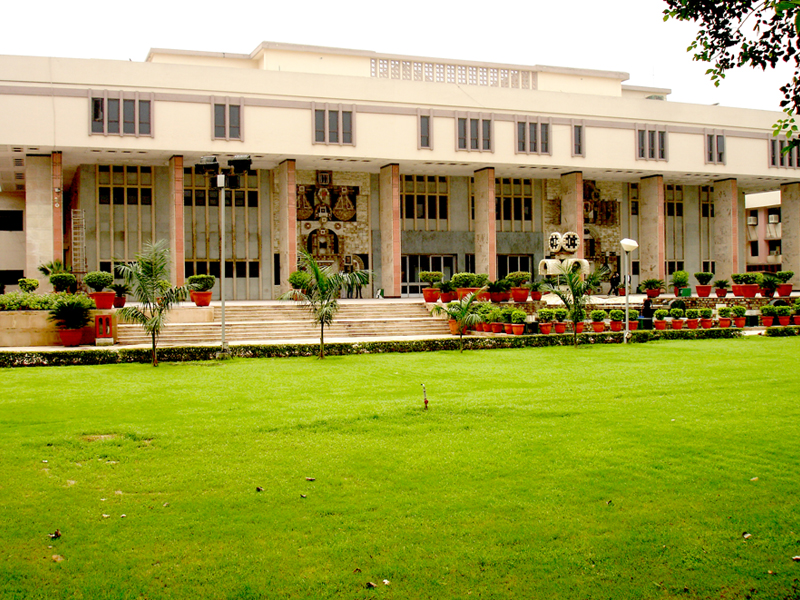The Delhi High Court stated that a magistrate cannot instruct a higher-ranking officer to file an FIR under Section 156(3) of the Criminal Procedure Code.

The Delhi High Court has ruled that a Magistrate cannot instruct a Superior Officer to carry out an investigation or file an FIR under Section 156(3) of the Code of Criminal Procedure. The Court reviewed petitions under Section 482 of the Code of Criminal Procedure, 1973, which sought to overturn an order from the Additional Sessions Judge. Justice Chandra Dhari Singh noted that according to Section 156(3), a Magistrate can only direct the officer in charge of a police station to investigate, not any higher-ranking officer. He further stated that even if a superior officer decides to investigate, it must be done either on their own initiative or by a directive from a higher authority or the Government. In all cases, the Magistrate does not have the authority under Section 156(3) to order a superior officer to investigate or file an FIR.
The Petitioners were represented by Advocate Seema Gupta, while Additional Public Prosecutor Raghuinder Verma represented the Respondents. The Petitioner had requested an overdraft limit from Syndicate Bank and provided the necessary documents to a bank agent. However, due to alleged fraud by this agent, the Petitioner filed an FIR against the bank officials and the agent. Subsequently, the Syndicate Bank initiated proceedings against the Petitioner in the Debt Recovery Tribunal, Delhi. The Petitioner also claimed that he was in possession of the property when the bank officials took symbolic possession of the 100 square yards of land. On that day, the Respondents reportedly entered the third floor of the property and began damaging it.
The Petitioner reported the situation to the Police, and the relevant Police Officials arrived at the location. The accused claimed ownership of the property in question. The Petitioner alleged that the accused destroyed items on the property in front of the police, yet no action was taken against them, and the Petitioner did not receive adequate assistance. Upset by this, the Petitioner filed a complaint against the accused and the police officials, and submitted an application under Section 156(3) of the Code to the Metropolitan Magistrate-1, asking for directions to prosecute those involved. An order was issued for the DCP (East) to register an FIR and transfer the investigation to the DIU. The Government of NCT Delhi, the police officials, and the accused then filed revision petitions against this order. The impugned order was issued, overturning the MM’s decision, stating there was no special evidence for registering the FIR, which could only be found during an investigation. The MM’s direction to the DCP to register the FIR was deemed incorrect as it contradicted Section 156(3) of the Code.
In response, the Petitioner filed petitions to overturn the impugned order. The Petitioner’s Counsel argued that the MM had the authority to direct both the investigation and the registration of the FIR, and to oversee the investigation. Additionally, it was stated that when registering an FIR, the investigating agency does not need to verify the information, and it is established law that an FIR must be registered when a cognizable offense is present.
The Court noted that it is well established that under Section 156(3) of the Code, a Magistrate can instruct a “police station officer” to carry out an investigation. However, the term “officer of the police station” has often been misinterpreted when using this power.
The Court referenced several Supreme Court rulings on this matter, particularly CBI v. State of Rajasthan (2001), which thoroughly examined the scope of Section 156(3) and the meaning of the term. From this, the Court concluded that the Magistrate does not have the authority under Section 156(3) to direct a higher-ranking officer to conduct an investigation or to file an FIR. Thus, the Court agreed with the learned ASJ’s view that the learned MM lacked the power under Section 156(3) to instruct the DCP, a senior officer, to file an FIR and transfer the investigation to the DIU. The petitions were therefore dismissed.
Cause Title: Harmeet Singh vs. State Govt. Of NCT Of Delhi (2025:DHC:779)
Appearances:
Petitioners: Advocate Seema Gupta, Advocate Roushan Choudhary, Advocate Dikyanshu Sharma Respondents: Additional Public Prosecutor Raghuinder Verma









